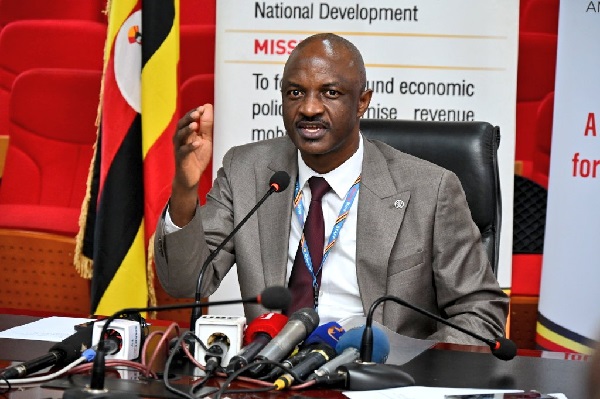
Stick to corruption fight, financial discipline, IMF tells Uganda
Kampala, Uganda | THE INDEPENDENT | The International Monetary Fund has commended the pace of Uganda’s growth but urged for a stronger anti-fight corruption fight and budget discipline ahead of the coming of oil revenues. This comes as Uganda’s economic growth improved from about 5 percent in 2022/2023 to 6 percent in 2023/2024, with the government forecasting a 7 percent rate this year and a double-digit in subsequent years.
The Executive Board of Directors of the IMF has concluded the country has “recovered well” from the effects of COVID-19 due to its management of inflation, foreign exchange, and other macroeconomic aspects. But for attaining inclusive, sustainable, and private sector‑led growth, they say accelerating structural reforms will be vital.
The Directors supported further efforts to strengthen enforcement of the anti‑corruption framework, address remaining shortcomings in anti-money laundering and combatting the financing of terrorism, enhance fiscal transparency, introduce regulatory reforms to support businesses and implement an ambitious climate resilience agenda drawing on the recommendations of the C‑PIMA (Climate Public Investment Management Assessment).
C-PIMA is an initiative of the IMF aimed at encouraging growth that is sustainable and inclusive regarding climate change and poverty reduction. The Executive Board of the IMF just concluded the 2024 Article IV Consultation with Uganda, which revealed a positive outlook for the economy, according to them.
“The economic recovery is strengthening with low inflation, favorable agricultural production, and strong industrial and services activity,” the Directors say about the 6 percent Growth and 3.9 percent inflation rate as of the end of June 2024. This, though, was slightly higher than that at the end of May, due to a rise in energy prices but remains within the Central Bank target of 5 percent.
The Fund, however, noted some risks to this growth, including an expanding current account deficit due to low exports and high import bills, as well as limited capital inflows which have weighed on Uganda’s international reserves.
“Despite strong coffee and gold exports, the current deficit remains high due to rising oil project-related imports. Tight global financial conditions and reduced external project and budget support have driven down gross international reserves, covering only 2.9 months of imports at the end of 2024 (excluding oil-project-related imports),” they say in their report.
The overall fiscal deficit continued to decline in the financial year 2023/2024 but was less than planned due to revenue underperformance and higher current spending, while development spending fell short of expectations, worsening expenditure composition.
Looking ahead, growth is expected to strengthen, boosted by the start of oil production, which will make lasting improvements in the fiscal and current account balances, while inflation is expected to rise closer to BoU’s target of 5 percent this year.
“Risks are mostly on the downside, including continued fallout from the Anti-Homosexuality Act, which complicates the already tight external financing conditions, potential delays in oil production, and climate-related shocks,” the Directors say.
Upside risks to inflation come from commodity price volatility, weather conditions, and exchange rate depreciation pressures stemming from limited capital inflows. Against this background, they encouraged continued reforms, including those envisaged under the expired ECF (Extended Credit Facility) arrangement, to rebuild fiscal and external buffers and boost inclusive and sustainable growth, supported by technical assistance from the Fund and other partners as needed.
The Directors encouraged strong efforts to create durable fiscal space, emphasizing the need to address significant spending demands in human capital, infrastructure, and climate resilience.
There is also the need for continued revenue‑based fiscal consolidation, improved expenditure discipline, and a prudent fiscal management framework to ensure the effective use of oil revenues once production begins.
On inflation and foreign exchange rates, the Directors commended the Bank of Uganda’s commitment to price stability and agreed with its tight monetary policy stance to anchor inflation expectations.
*****
URN
 The Independent Uganda: You get the Truth we Pay the Price
The Independent Uganda: You get the Truth we Pay the Price



